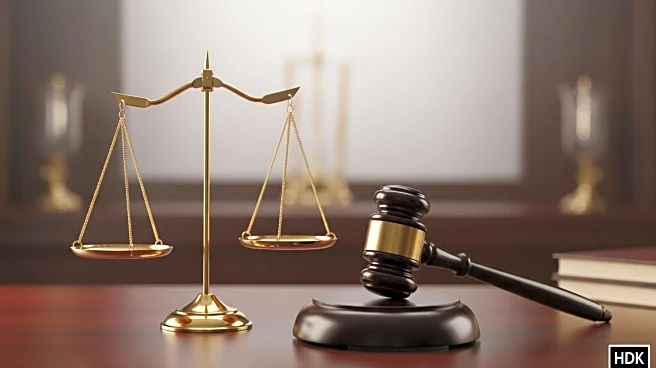What's Happening?
A federal judge has issued a temporary restraining order preventing the Trump administration from deploying National Guard troops to Portland, Oregon, from any state. Judge Karin Immergut's decision follows her previous order blocking the mobilization of the Oregon National Guard. The administration had ordered troops from California and Texas to support federal operations in Portland, prompting legal challenges from Oregon and California. The judge's order, which lasts 14 days, aims to prevent further federalization of National Guard members without state consent.
Why It's Important?
This legal battle underscores the tension between state and federal authorities over the use of military forces in domestic affairs. The judge's order challenges the Trump administration's approach to deploying National Guard troops, raising questions about federal overreach and states' rights. The situation highlights the broader debate over the militarization of law enforcement and the federal government's role in local matters. The outcome of this legal dispute could set a precedent for future federal-state relations and the use of military forces in civil contexts.
What's Next?
The federal government plans to appeal the judge's order to the Ninth Circuit Court of Appeals. The legal proceedings will determine whether the administration can continue deploying National Guard troops to Portland and other cities. The case could escalate to higher courts, potentially influencing national policies on military deployment and federal authority. State officials and civil rights groups are likely to continue opposing the administration's actions, advocating for state autonomy and the protection of civil liberties.
Beyond the Headlines
The deployment of National Guard troops to Portland raises ethical and legal concerns about the militarization of domestic law enforcement. The case highlights the need for clear guidelines on the use of military forces in civilian settings and the balance of power between federal and state governments. The legal dispute also reflects broader societal tensions over government authority, civil rights, and public safety in the U.S.









